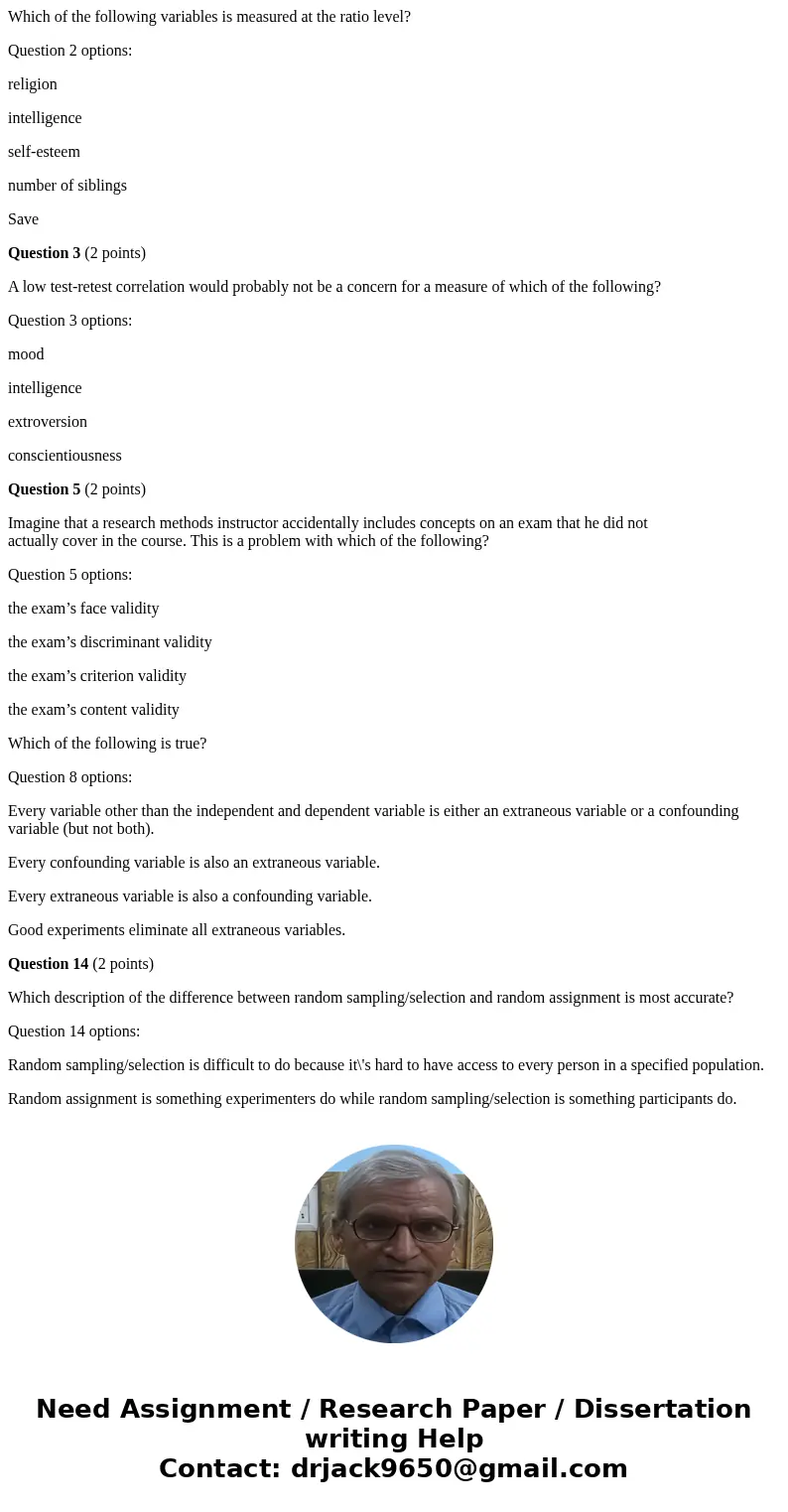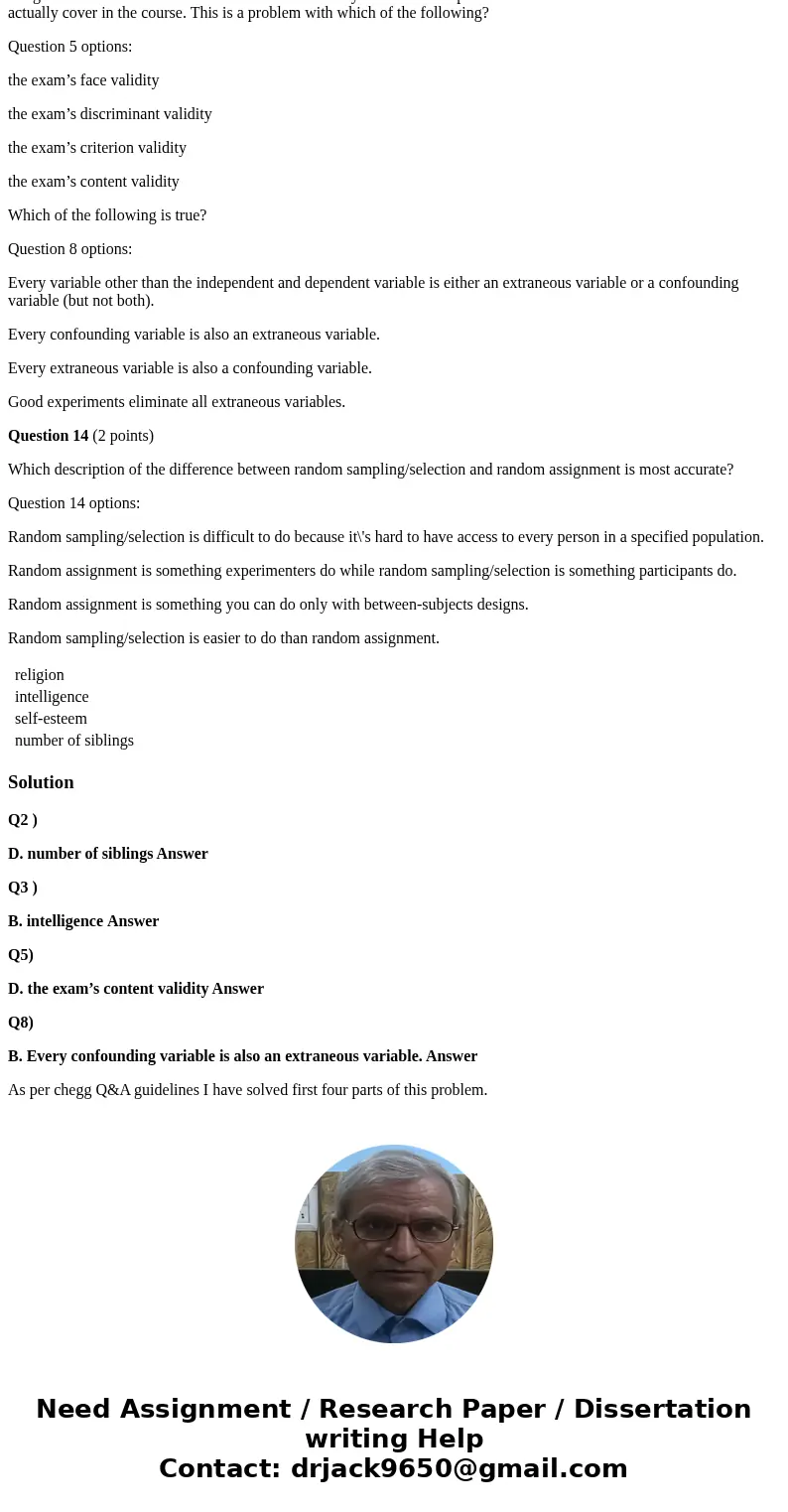Which of the following variables is measured at the ratio le
Which of the following variables is measured at the ratio level?
Question 2 options:
religion
intelligence
self-esteem
number of siblings
Save
Question 3 (2 points)
A low test-retest correlation would probably not be a concern for a measure of which of the following?
Question 3 options:
mood
intelligence
extroversion
conscientiousness
Question 5 (2 points)
Imagine that a research methods instructor accidentally includes concepts on an exam that he did not
actually cover in the course. This is a problem with which of the following?
Question 5 options:
the exam’s face validity
the exam’s discriminant validity
the exam’s criterion validity
the exam’s content validity
Which of the following is true?
Question 8 options:
Every variable other than the independent and dependent variable is either an extraneous variable or a confounding variable (but not both).
Every confounding variable is also an extraneous variable.
Every extraneous variable is also a confounding variable.
Good experiments eliminate all extraneous variables.
Question 14 (2 points)
Which description of the difference between random sampling/selection and random assignment is most accurate?
Question 14 options:
Random sampling/selection is difficult to do because it\'s hard to have access to every person in a specified population.
Random assignment is something experimenters do while random sampling/selection is something participants do.
Random assignment is something you can do only with between-subjects designs.
Random sampling/selection is easier to do than random assignment.
| religion | |
| intelligence | |
| self-esteem | |
| number of siblings |
Solution
Q2 )
D. number of siblings Answer
Q3 )
B. intelligence Answer
Q5)
D. the exam’s content validity Answer
Q8)
B. Every confounding variable is also an extraneous variable. Answer
As per chegg Q&A guidelines I have solved first four parts of this problem.


 Homework Sourse
Homework Sourse